
 Reading, Short And Deep #193
Reading, Short And Deep #193
Eric S. Rabkin and Jesse Willis discuss A World Of Sound by Olaf Stapledon
A World Of Sound was first published in Hotch Potch, 1937.
Here’s a link to the PDF of the story.
Posted by Scott D. Danielson

 Reading, Short And Deep #193
Reading, Short And Deep #193
Eric S. Rabkin and Jesse Willis discuss A World Of Sound by Olaf Stapledon
A World Of Sound was first published in Hotch Potch, 1937.
Here’s a link to the PDF of the story.
Posted by Scott D. Danielson

 The SFFaudio Podcast #547 – Jesse, Paul Weimer, Maissa Bessada, Julie Davis, and Terence Blake talk about The Angel Of Terror by Edgar Wallace
The SFFaudio Podcast #547 – Jesse, Paul Weimer, Maissa Bessada, Julie Davis, and Terence Blake talk about The Angel Of Terror by Edgar Wallace
Talked about on today’s show:
1922, mean and bad people who all look very pretty, act so sweet, physically beautiful, even the ugly people are distinctive, surprised, Julie has read it three or four times, Terence read it in two sittings, the LibriVox was too slow, he wrote a tonne of books, super-popular, very exciting, you read it as fast as he wrote it, he dictated his writings, he roared through them, Kevin J. Anderson does the same thing, very extensive Wikipedia biography, aha!, he used every part of the buffalo, stuff that happens in his life, he’s the bad guys, they all go to the South of France, he wrote King Kong, the best way to approach him, using themselves, churning out a great adventure, more complete, the angel and the other woman, you can’t like her but you can admire her, she’s so complete, Lydia liked her, Maissa enjoyed it like candy, the author loved her (the angel), so nefarious, Jack O’ Judgement, Batman/Joker character, what genre is this?, suspense, is she going to get away with it?, will she do it, it wasn’t suspenseful, armchair interesting, interesting jumping, that style of writing/thinking, working the plot out on the fly, putting out a novel in three days (with no editing), he’s got magic, breaking it down, funny lines, Terence’s neighborhood, Cannes, Monte Carlo, Nice, San Remo, the true reason they go down there, he has to get rid of his money as quickly as possible, you can’t drink and drug that much, the best way to get rid of money, very exotic, a few sound problems at the beginning of the audiobook, we open with the conclusion of a murder case, how can we get our client off even though he’s been convicted, the lawyers flout the law, family loyalty, they knew she was guilty, she’s his white whale, will you please just take these steps?, falling under the sway of a charismatic personality, unrelenting naivete, Edgar Wallace is the main character, he was working for a newspaper, how many times he got married, there was dictation, To Catch A Thief (1955), a very strange taffy-pull, a reverse Les Misérables, off to North Africa, Edgar Wallace plot wheel, what kind of Edgar Wallace plot you’re in, wheel of blind trails by which the hero is mislead or confused, planted clues, false confession, document forged, go around the room, having those prompts, watching Jean have to improvise, somebody is going to get Lydia, double plans, “oh great, the chauffeur’s in love with me”, when Lydia’s being shot at on the raft, there’s something funny about it, things become more and more far-fetched, A Series Of Unfortunate Events, Jesse’s mom read him a book for Christmas (A Peculiar Curiosity by Melanie Cossey), the reason that book exists as it does, trying to make everything right, he’s much more like Elmore Leonard, I don’t know anything about diving, go find out about that stuff for me, dialogue driven crime sort of stuff, that external research, Civil War reenactors, “farbs” they’re in it for the weekend, it’s just what we do, Alexander Dumas, set in London, John Buchan’s The 39 Steps, less he-man, Wallace was in love with his villain, this malignant disease, forgotten to say her prayers, a broken moral compass, damn!, it’s natural to her, I fear life without money, the cold mutton of yesterday, the people reading these books, she’s a sociopath, deep into his biography, when he joined the army, Edgar Wallace is named after Lew Wallace author of Ben Hur, religious as an undercurrent, the premise is uniquely interesting, her debts are because she’s so moral, some rando stranger somewhere on the internet dies, we’ll marry him off, that hook is so important, ooh hey!, this wide eyed innocent but quite competent lady, can she compromise her moral values and the plot is rolling along, did Jesse doctor the audiobook’s speed?, some sort of weird forced marriage?, by any means necessary, genre expectations, Brewster’s Millions (1985), a false tension, George Barr McCutcheon’s novel Brewster’s Millions, new clothes, new place, she IS a fashion plate,
The novel revolves around Montgomery Brewster, a young man who inherits 1 million dollars from his rich grandfather. Shortly after, a rich uncle who hated Brewster’s grandfather (a long-held grudge stemming from the grandfather’s disapproval of the marriage of Brewster’s parents) also dies. The uncle will leave Brewster 7 million dollars, but only under the condition that he keeps none of the grandfather’s money. Brewster is required to spend every penny of his grandfather’s million within one year, resulting in no assets or property held from the wealth at the end of that time. If Brewster meets these terms, he will gain the full 7 million; if he fails, he remains penniless.
Edgar Wallace’s dream, the house always wins, whatchu gonna do with that money?, the kind of plot premise that starts off this money, she marries a murderer, he’s suicided, she’s an heiress loose on the goose, study with the Italian masters, It’s A Mad, Mad, Mad, Mad World (1963), our anti-hero is a “femme fatale”, she cuts the guy’s hand, your handkerchief please, she’s a monster, a very attractive monster, brought to justice?, she hoodwinks one more guy, it’s for the wildlife, you don’t want to hurt a dolphin, she’s met her match, Jesse got the sense the cycle was going to repeat, she meant it, he’s an interesting man, the last line, five million francs, money did not interest her, a sphere of might and power, an intellectual is somebody who has discovered something more interesting than sex, he was likeable, he loves her anyway, simpering, saving Lydia, love was more important, chose something good at the end, fooled by Mr Jags, the train station, he’s gonna follow her, because I have a criminal mind, a wholesome respect for the law, Jack Glover = Jag, who was the angel of terror?, at no moment does she inspire terror, Jag is the Hyde aspect of Jack Glover, the two angels, she conducts terror, she feels terror, Jean might corrupt Lydia, a first class criminal, born 600 years to late, Lucrezia Borgia, Dexter, a do good framework, did Edgar Wallace know Jags was gonna be Jack, the character shift is pretty massive, a very good fellow (illiterate and speaks amazing French), I wouldn’t mind a pipe, a disguise, Julie agrees with Terence, too much weight on the dictation?, a flow of consciousness, increasingly outlandish, he knew and he didn’t know, fiction writing, seeing connections, plots in opposition, a twist that inverts, deliberate, trying to hide identity, Carmilla, Mircalla, an acronym of your own name, a tribute to Edgar Wallace, its hard to tell, this is a job for Superman!, from a writer’s perspective, he was there the whole time, one alternate title: The Destroying Angel, a quote from Duino Elegies by Rainer Maria Rilke, maybe both are the angel of terror, disguised, her beauty is her disguise, lookism, I’ll get you my pretties!, the opening of Chapter 2, the writing is “choice”, mmmm yes,
Lydia Beale gathered up the scraps of paper that littered her table, rolled them into a ball and tossed them into the fire.
There was a knock at the door, and she half turned in her chair to meet with a smile her stout landlady who came in carrying a tray on which stood a large cup of tea and two thick and wholesome slices of bread and jam.
“Finished, Miss Beale?” asked the landlady anxiously.
“For the day, yes,” said the girl with a nod, and stood up stretching herself stiffly.
She was slender, a head taller than the dumpy Mrs. Morgan. The dark violet eyes and the delicate spiritual face she owed to her Celtic ancestors, the grace of her movements, no less than the perfect hands that rested on the drawing board, spoke eloquently of breed.
“I’d like to see it, miss, if I may,” said Mrs. Morgan, wiping her hands on her apron in anticipation.
Lydia pulled open a drawer of the table and took out a large sheet of Windsor board. She had completed her pencil sketch and Mrs. Morgan gasped appreciatively. It was a picture of a masked man holding a villainous crowd at bay at the point of a pistol.
“That’s wonderful, miss,” she said in awe. “I suppose those sort of things happen too?”
The girl laughed as she put the drawing away.
“They happen in stories which I illustrate, Mrs. Morgan,” she said dryly. “The real brigands of life come in the shape of lawyers’ clerks with writs and summonses. It’s a relief from those mad fashion plates I draw, anyway. Do you know, Mrs. Morgan, that the sight of a dressmaker’s shop window makes me positively ill!”
at the end of this chapter is a review of this book, Philip K. Dick, the promise of the book:
“Since when has the Daily Megaphone been published in the ghastly suburbs?” asked the other politely.
He saw the girl, and raised his hat.
“Come along, Miss Beale,” he said. “I promise you a more comfortable ride—even if I cannot guarantee that the end will be less startling.”
a nice turn of phrase, Mrs Cole Mortimer was a chirpy pale little woman of forty-something, descriptions of the south of France, my soul has been in a hundred collisions, she had no sense of metaphor, page 52, waiting for the detective to arrive, picturesque dressing gown and no-less picturesque pajamas, to impress, the staging and artifice, hoodwinked all the way through, the ability to surprise while we’re in the know, cotton candy, it’s very old, on LibriVox, Lee Elliott was a good narrator, getting professional about our amateurism, Terence is sounding good, our show, Terence’s sound is terrible, content is king, sometimes narrators have really good taste, Phil Chenevert does tonnes of science fiction, narrating a novel is a huge commitment, “yup I’m doing another one for money, Jesse”, the narrator of Weiland (Karen Joan Kohoutek), Greener Than You Think by Ward Moore, almost like reading a super-old style comic book, this mysterious cloaked and masked character, no one knows who he is, Moon Knight, a minor Marvel character, The Joker, The Riddler, youre almost on the evil guy’s, The Shadow, Orson Welles, a giant prosthetic nose, Wallace didn’t live that long, proto-superhero magazines, the foreshadowing of that, The Spider, Doc Savage (the guy with the big shiny muscles), Remo Williams: The Adventure Begins, Buckaroo Banzai, failed MCUs (Marvel Cinematic Universes), an aspect like the Watchmen, Sherlock Holmes, Zorro, the evolution, James Bond, superhero-like stories, going in blind, understanding the phenomenon, we couldn’t quit reading, on his writing process, Brian Aldiss, you begin with a striking image, a crazy robot on the moon firing into the void, he probably began with the beautiful evil woman, there is a huge unity to the story, imagistic unity, Jack and Jean’s story, there’s this 1971 movie, nope it’s not that, conventions stuck in the period in which it is set, House, M.D. works much better, differential diagnostics, he’s a consulting doctor, what Arthur Conan Doyle really did, very Agatha Christie territory, to see the actors chewing up the scenery, set it after WWII, Casino Royale by Ian Fleming, get some colour, Jean would laugh at Dexter, you’re wasting your talents!, as any flapper would pick up any nut, proto-feminism, F. Scott Fitzgerald, Scarlett Johansson as Jean,
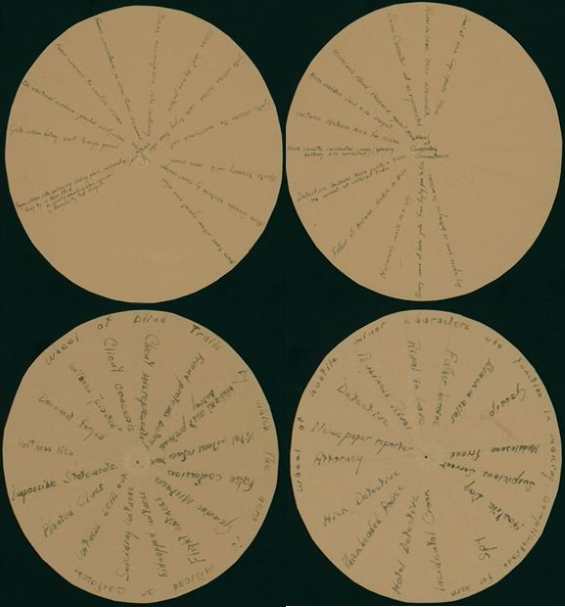
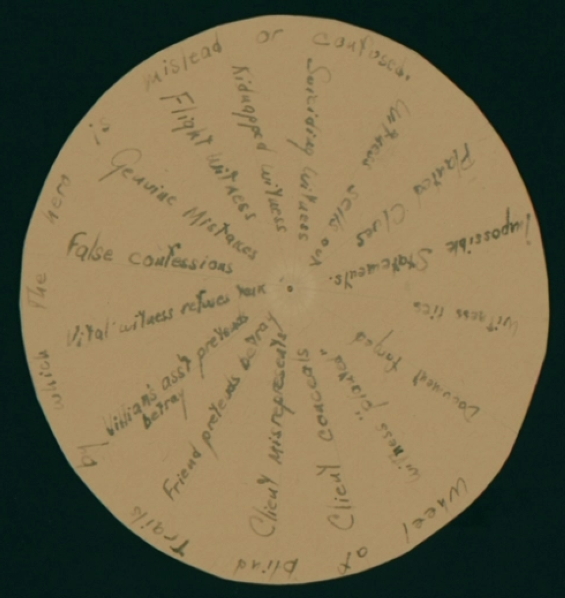
Posted by Jesse Willis

 Reading, Short And Deep #192
Reading, Short And Deep #192
Eric S. Rabkin and Jesse Willis discuss The Rocking-Horse Winner by D.H. Lawrence
The Rocking-Horse Winner was first published in Harper’s Bazar, July 1926.
Here’s a link to the PDF of the story.
Posted by Scott D. Danielson

 The SFFaudio Podcast #546 – The Angel Of Terror by Edgar Wallace, read by Lee Elliott.
The SFFaudio Podcast #546 – The Angel Of Terror by Edgar Wallace, read by Lee Elliott.
This UNABRIDGED AUDIOBOOK (6 hours, 27 minutes) comes to us courtesy of LibriVox. The Angel Of Terror was first published in 1922.
The next SFFaudio Podcast will feature our discussion of it!
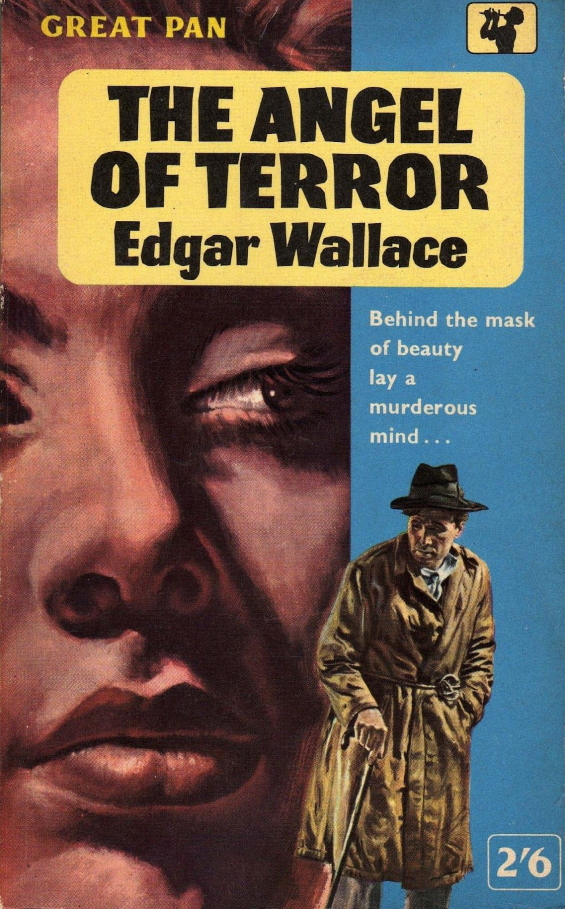
Posted by Jesse Willis

 Reading, Short And Deep #191
Reading, Short And Deep #191
Eric S. Rabkin and Jesse Willis discuss The Meanest Man That Ever Lived by Bruno Lessing
The Meanest Man That Ever Lived was first published in Cosmopolitan, May 1908.
Here’s a link to the PDF of the story.
Posted by Scott D. Danielson

 The SFFaudio Podcast #545 – Jesse, Paul Weimer, Maissa Bessada, Julie Davis, and Terence Blake talk about Police Your Planet by Lester del Rey
The SFFaudio Podcast #545 – Jesse, Paul Weimer, Maissa Bessada, Julie Davis, and Terence Blake talk about Police Your Planet by Lester del Rey
Talked about on today’s show:
cobber, guv’nor, tinhorn, ex-firster, a contemptible person, the Australian etymology, comrade, a revolution book, profound and deep and amazing, not the greatest science fiction novel ever written, no illusions, leg-clining, leg cling is the best part, ridiculous, weirdness, Helen O’Loy, Nerves, shaping the paperback industry, in the mood for something like, dig deep to keep going, 1.2x speed, police yourself, eastern USA accent?, perfectly adapted to the novel, implacable, a bulldozer through the plot, a fast read, a sweet-spot for science fiction novels, the period, what he’s doing, where this book fits in science fiction, The Moon Is A Harsh Mistress but on Mars with more Mickey Spillane, more like tar than noir, Julie likes Maissa’s spirit, the same scenario over and over, Groundhog Day, shaking people down and breaking heads, a 15 page short story, Philip St. John was editor of several magazines, praising his own novel in the editorial, defending the novel against critics, fired from Future Publications, juggling everything, editorials, writing short stories and essays for four magazines, writing the novel while publishing it, a three part serial turns into four, people hate the serial, some people love them, he doesn’t really know where its going to end, this is gonna be okay (and then it fell apart), noirish style, the same trick over and over again, cop tinhorn fighter, Mercury mines, a punched mealticket, what the repetition does, not a fan of security, maybe…, Honest Izzy, didn’t pay-off, why did I get dragged through all this?, why you should be excited to buy this magazine, Van Lihn, a convincing picture of a planet, we were enjoying it, super-sloppy, not detail oriented?, its all getting done badly, apologizing, the height of the massive growth of science fiction magazines, as a product of that period, Dickens did that, he knew his prolific output, Elizabeth Gaskell, the motivation of Shelia, putting a gang together, why she attacked Gordon and was crying, in debt, sold as a slave, this is for what you did to Hilda, as a defense mechanism he hid all his soft feelings behind a tough mechanical exterior, a machine devoid of feeling, too much?, the fix-up, taking stuff in and take stuff out, chapter titles, chapter two is missing, police your prose, “Girl Gangs Of Marsport”, John W. Campbell, appreciating Campbell, the Del Rey books, his fourth wife, he’s a fucking liar, Erik Van Lihn, his Wikipedia entry, a professional liar, the closing editorial, “but it could happen”, happy to see it’s end, a darn fine yarn, doesn’t anyone like it, terrible as a whole, fun bits, it doesn’t overstay its welcome, it should have been about Mother Corey, pulpy, the agent of change is a ex-boxer ex-gambler ex-cop ex-whistleblower, a yellow journal, benign agency, a traitor, if you squint a bit or your sick its not that bad, Durance, prison planet, done RIGHT, Australia as prison colony experience, a gloss of paint rather than thinking about ideas, Jerry Pournelle’s Co-Dominion, Sparta (prison planet), he could have done a lot more with this, less than the sum of its parts, what this podcast might be doing, what science fiction is, exploring the things Jesse’s interested in, the South Pacific in the 1830s (without spaceships), set on Mars with rockets and domes and superchargers, not science fiction, an editorial in Science Fiction Quarterly, February 1957, Robert W. Lowndes, P. Schuyler Miller, “The Reference Library”, good heavens!, Bridey Murphy, a suspense story, that’s a crime busting tale, where is the science fiction, it didn’t need to be set on Mars, gangs of New York, westerns, a lawless wild west story, almost no concrete ideas that are particularly speculative, something that Eric (Rabkin) taught Jesse, transformed language, The Teaching Company, an impression of the world in which you’re living, Cuddles, he sands the dishes for her, pioneer stories, designed to give you an impression of a whole world in the background you don’t see in the text, what makes it really science fiction is that it has ideas, so scattershot, he doesn’t follow through, Olaf Stapledon, no characters, idea after idea after idea, what science fiction might be, science is ways of knowing, he doesn’t know what he’s doing when he starts, a Philip K. Dick trick: he makes it symmetrical, the plot and the beatings and the dome punching, goddamned communists!, how do revolutions happen?, interesting as an artifact, imperialism, why certain things look like, a Big Big World, continents and countries and resources, why are people doing X, Y, or Z?, geography and resources, WWII, why are things happening this way, that’s where the oilfields are, like the game Settlers Of Catan, life outside of Marsport, Komarr, Lois McMaster Bujold, which is it?, changing from paragraph to paragraph, he’s going to derail an already overly long book, heartland hinterland, the Canadian experience, the resources for the USA, branchplantism, car factories in Ontario, Canada as a the hinterland for the United States’ heartland, the outsiders and the insiders, there’s a dystopia on Earth that we don’t get to see, a corrupt journalist who did a little too much actual journalism, something about his personality, he’s not an upright guy looking for the truth, corrupt but not completely corrupt, the heroes are the agency, East Germany, everyone has a secret badge, we’re gonna eat strawberries and cream, White Tiger (2012), this Jesus figure, t-34s, praying to the god of tanks, a very strange Russian movie, Duel (1971) TV movie, The Haunted Tank, why?, Ok?, The Killer Angels, two strange scenes at the end, a long scene with Hitler, the unconscious desire of Europe, is that the European psyche?, the audience?, equally baffling, unconditional surrender, talking about the food, the Russians bring in desert, what is this?, strawberries and cream, come the revolution we’ll all eat strawberries and scream, the revolution has come, when the revolution comes, a downtrodden people, what the rich people always have, playing all these ideas out, why it is a weak science fiction novel, you’re like Judas, they stuck in his throat, the methods used betray the ideals, that’s what we like about Gordon: he uses all the wrong means, the thirty pieces, none of it makes any sense, he’s busy in the kitchen and some things are burning, James Blish’s review: it’s naturalism but not realism, unpleasant matter, a normal sexual relationships, a bundling scene, they kiss, a normal reaction, goes nowhere, the naughty parts for a 1953 science fiction audience: salacious, Samuel Beckett, trance writing, humourless, the voting chapter, vote early and often, Alfred Bester could hold it together, the difference between a great writer and a medium writer, I’m expecting people to pick up…, roiling around, tossed salad and scrambled eggs isn’t revolutionary, Les Misérables, about redemption?, building something together, a change of mind, it’s horribly written, women’s psychology in the fifties, lock this room for a week, how little depth it has, you seem alright in a way, your boots, arranged marriage, if a lady tries to stab you or breaks a bottle over your head she likes you, a book club, five hours like eons, Jesse made Wayne June read the 60 hour Jerusalem by Alan Moore, and Evan has already finished it, baseline science fiction, Isaac Asimov, Arthur C. Clarke, picking vs. talent, don’t even try to defend it, shotgun, the setup and the dome and the boots, and we’re all spy, what about the drugs?, street drugs, they’re all starving to death, social control, undercooked, ideas he doesn’t do anything with, we should read Mockingbird by Walter Tevis, why books used to have chapter names, editing out the “this is a librivox recording all librivox recordings are in the public domain”, editing, so amazing, first published in 1980, Julie’s mom loves Alfred Bester, on Earth and so good, a nebula nominee, doable, electric bliss, Jesse has pirate powers, spoiled it!, plus five stars, The Rosie Project, The Man Who Fell To Earth, a book about chess, Squares Of The City by John Brunner, Jesse is the best ever.
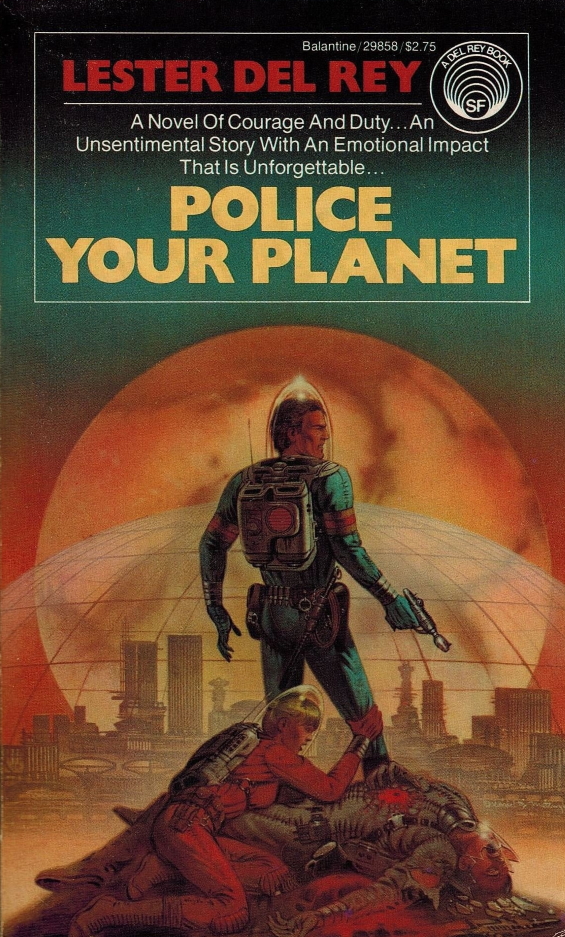
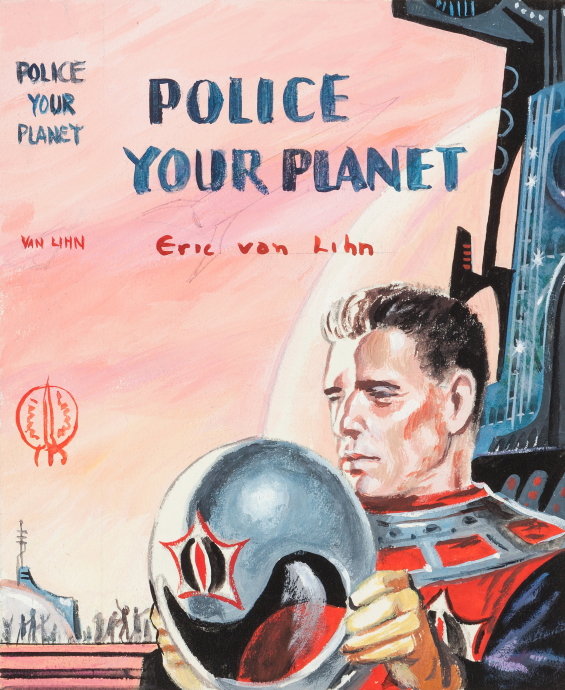
Posted by Jesse WillisBecome a Patron!